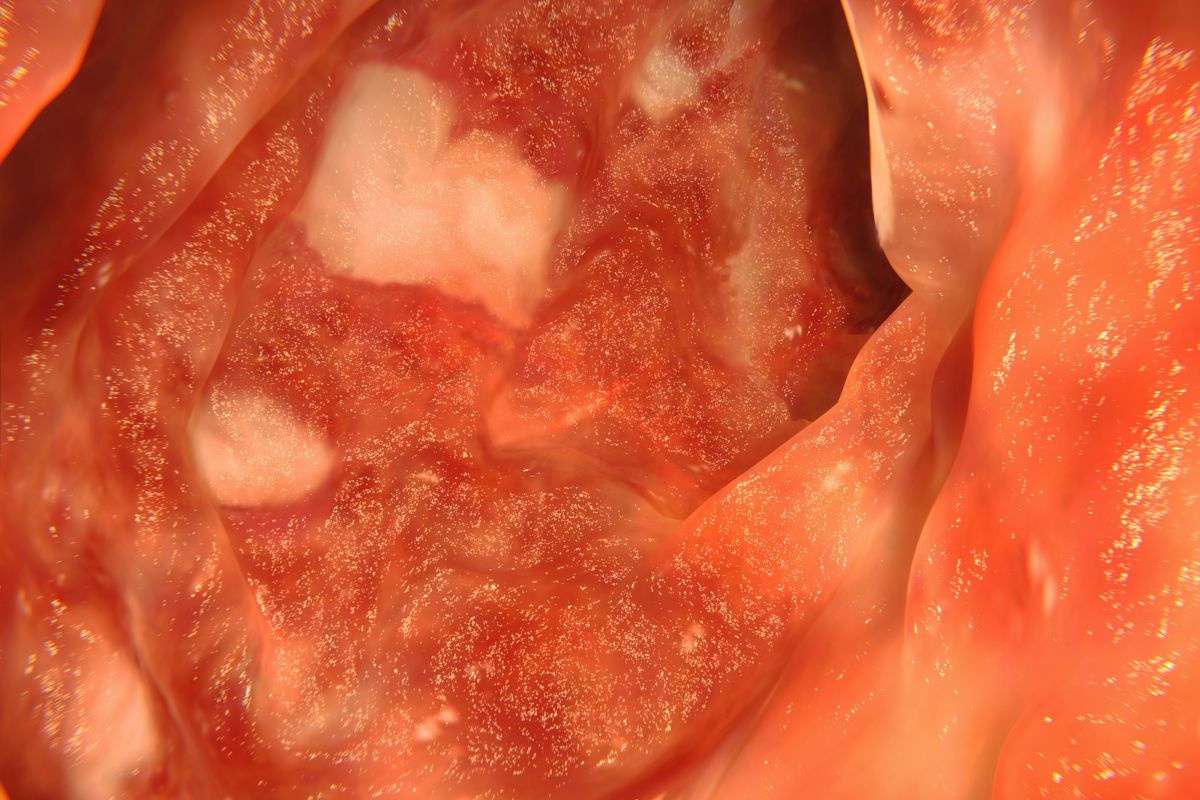If you’ve been experiencing chronic gastrointestinal problems, weight loss, and stomach cramps, then it is possible you are suffering from an inflammatory bowel disease (IBD).

There are two types of inflammatory bowel diseases, Crohn’s disease and ulcerative Colitis (Colitis). These two types of inflammatory bowel diseases have a lot of similarities.
However, there are distinguishable factors of each disease that sets them apart.
If you are unsure of the differences then you’ve come to the right place. In this guide, we are going to walk you through the difference between Crohn’s disease and Colitis, looking at the symptoms and which one is worse.
What Is Crohn’s Disease?
Before we look at the differences, it is important that we are aware of what each disease is. As mentioned before, Crohn’s disease is an inflammatory bowel disease.
This means that it is a lifelong disease and it causes parts of the gastrointestinal tract to become inflamed.
What Is Colitis?
Similar to Crohn’s disease, ulcerative colitis is a type of inflammatory bowel disease. It is a chronic disease. Ulcerative colitis is where there is inflammation in the lining of the colon.
The lining of the colon ends up having ulcers or small open sores. Colitis happens because there is an overactive immune system response.
The Differences Between Them
Now that you know more about both Crohn’s disease and ulcerative colitis, we can look at what is different between the two conditions.
The differences between the two conditions will help you to gain a better understanding of each inflammatory bowel disease.
Location Of Affected Area
The first and easiest difference to notice is the location of the area affected by the disease. Ulcerative colitis is a disease that only impacts the large intestine.
Whereas, Crohn’s disease can cause inflammation of any part of the digestive tract. This means Crohn’s disease can affect anywhere from the mouth region to the anus.
When it comes to Crohn’s disease, since it affects the entire gastrointestinal tract, there tend to be more identifiable problems in patients that suffer from it.
Compared to patients with ulcerative colitis, patients with Crohn’s disease are likely to suffer from mouth sores and anal fissures.
The mouth sores that patients with Crohn’s disease suffer from can happen on the gums and lower lip. These sores are also common on the side of the tongue.
Inflammation
Studies have shown that those who are diagnosed with Crohn’s disease often have healthy areas on the intestine, in between the inflamed parts.
However, those who have been diagnosed with ulcerative colitis do not have any healthy parts. Instead, the areas of the colon are continuously inflamed.

Diagnosing Differences
Since these two types of inflammatory bowel disease have significant differences, there are different tests that patients can undergo in order to receive a diagnosis.
For ulcerative colitis, doctors may investigate stool samples from patients. Doctors will be looking for blood and mucus in the stool sample.
Stool samples will also help the doctor to dismiss any other potential causes of the inflammation such as a bacterial infection.
When it comes to diagnosing an inflammatory bowel disease most patients are required to undergo a colonoscopy. A colonoscopy is where a small camera is placed into the colon.
The camera is attached to a tube. This camera allows the doctors to see the colon and help them know where to take a biopsy of the inflamed area.
During the colonoscopy, doctors will be looking to see whether the inflammation occurring starts from the rectum but stops at the top of the colon.
If this is what they are able to see, this is a potential indication of ulcerative colitis.
However, since Crohn’s disease causes inflammation all along the gastrointestinal tract with healthy areas between inflamed ones, doctors will be looking for this.
Doctors will be observing whether it is just parts of the colon that are inflamed, with healthy parts of the colon around inflamed areas.
Another diagnostic test difference is searching for granulomas. Crohn’s disease can lead to a cluster of these immune cells building up. However, colitis does not result in these cells.
Further tests such as MRIs or CT scans may be required in order for the doctor to get a clearer picture of the inflammation.
Crohn’s disease and ulcerative colitis have shared symptoms, which is why people might struggle to identify which one is which. Here are the common symptoms that are shared by both Crohn’s disease and ulcerative colitis:
- Stomach cramps
- Diarrhea or constipation
- Bleeding from rectum
- Weight loss
- Fatigue
- Irregular period patterns (hard to predict when a period is happening or skipping them entirely)
Another symptom that these two inflammatory bowel diseases have in common is the urgent need for a bowel movement. You may experience not feeling as though your bowel movement was complete when finished.
Those diagnosed with either of these two inflammatory bowel diseases have reported experiencing night sweats.
It is important to note that not everyone has the same symptoms and not everyone will experience all of these symptoms. These symptoms often depend on how severe your flare-ups are.
Different Treatment Options
There are a number of different treatments for both inflammatory bowel diseases.
Medication is one of the most common options for treatment. The medication used tries to reduce inflammation and other symptoms.
Some people are put on a diet plan as a form of treatment. Though the effectiveness varies depending on the person.
Surgery is also an option for treating both diseases. However, surgery is only used on patients that are experiencing severe complications.
Which Is Worse?
It is difficult to say which is worse as it depends on each case. However, those with ulcerative colitis are more likely to need surgery as a result of the sores. So some would argue colitis is worse.
Conclusion
Crohn’s disease and colitis are similar but they do have notable differences. In terms of symptoms, they are quite similar but the diagnosing process is different for each disease.
We hope this article answered all of your questions about Crohn’s disease and colitis. Thank you for reading!
- Understanding Male Reproductive Health: A Complete Guide - February 2, 2025
- Simple Healthy Skin Habits for Radiant Skin - December 6, 2024
- Unlocking the Connection Between Nutrition and Mental Health - December 3, 2024








